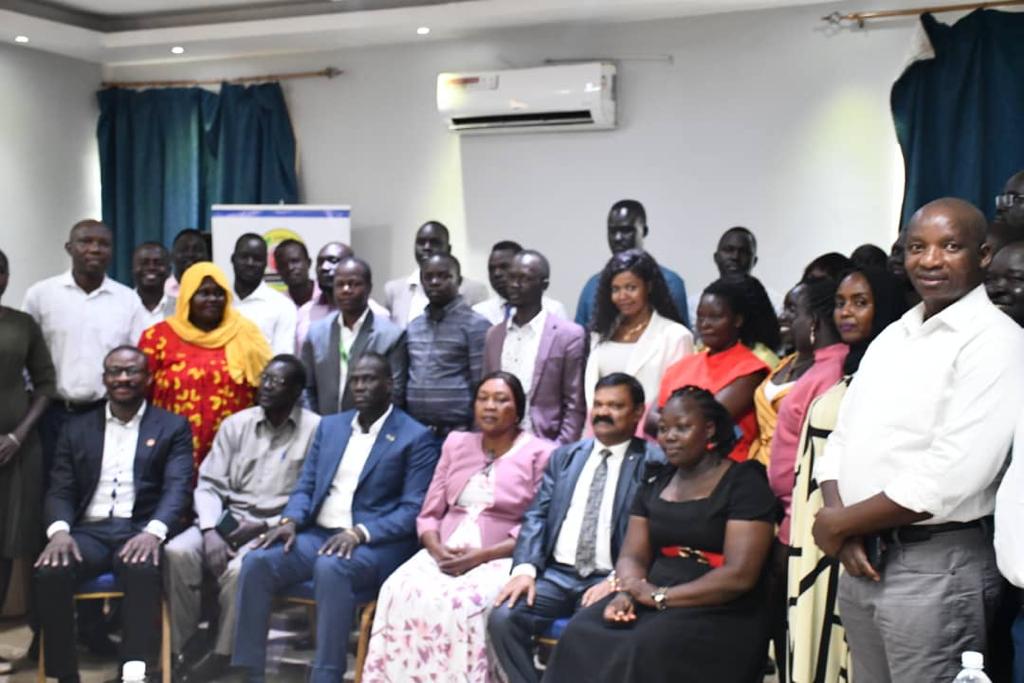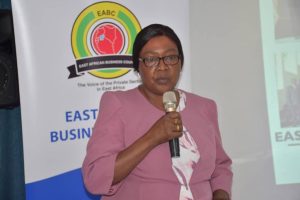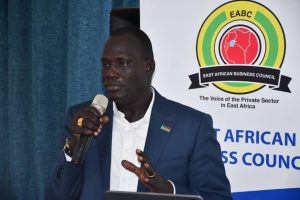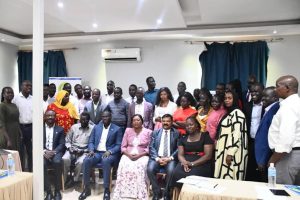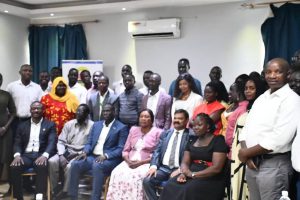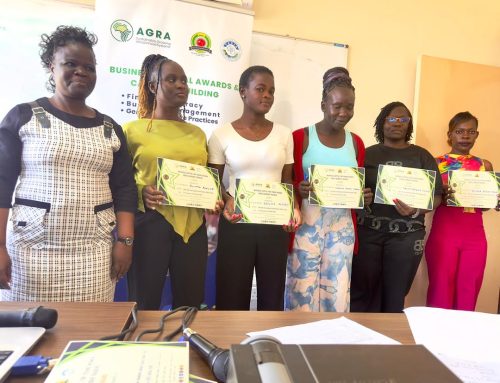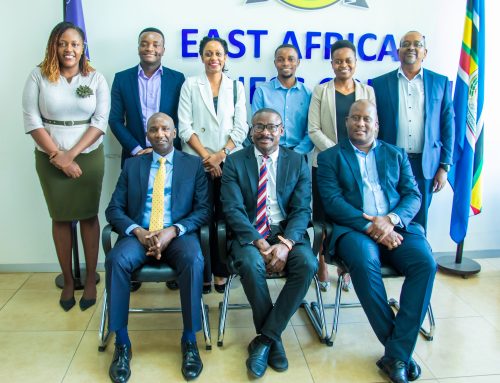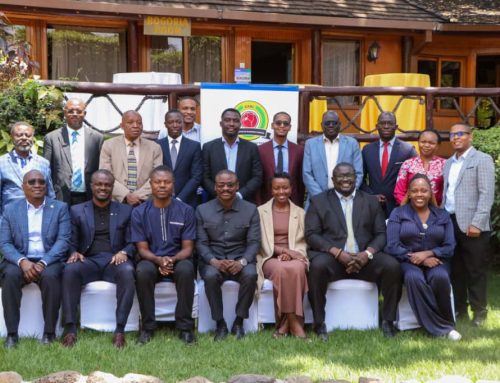Thursday, 23rd November 2023, Juba, Republic of South Sudan: The East African Business Council (EABC), in partnership with GIZ – Support to East African Integration Programme Project II, has enhanced the knowledge of 48 members of the business community engaging in value addition across priority sectors such as agri-business, manufacturing, leather, pharmaceuticals, transport & logistics, and fruits & vegetables concerning the African Continental Free Trade Area (AfCFTA) Trade in Goods Protocol.
During the official opening of the workshop, Ms. Christina Peter Jabakana, Director General for Administration from the Ministry of EAC Affairs, Republic of South Sudan, expressed the workshop’s significance in inspiring and encouraging South Sudanese private sectors to seize abundant opportunities presented by the African Free Market, created through the implementation of AfCFTA.
“Let’s use this workshop to identify potential challenges the private sector in South Sudan may encounter when commencing trade under AfCFTA to devise effective strategies to overcome them,” she emphasized.
She concluded by reiterating the government’s commitment to creating a conducive business environment, fostering a vibrant private sector capable of driving the national economy as the engine of growth.
Mr. John Lual Akol Akol, the First Vice Chairperson of the South Sudan National Chamber of Commerce Industry and Agriculture (SSNCCIA), stressed the importance of private sector awareness regarding the benefits and challenges arising from the implementation of the AfCFTA Agreement.
He urged the South Sudanese Government to ratify the AfCFTA agreement, ensuring the Republic of South Sudan becomes a legal and binding Party State, emphasizing the need to sensitize both private and public stakeholders.
“AfCFTA provides an expanded market of 1.3 billion people and a combined GDP of 3.4 trillion, in addition to the EAC market where South Sudan is a member,” he highlighted.
Presently, EAC Trade and Investment Statistics indicate that South Sudan’s merchandise total trade surged to USD 443.6 million in 2022 from USD 216.7 million in 2021, although the trade balance worsened to USD 436 million in 2022 from USD 147.1 million in 2021. South Sudan’s main merchandise exports include crude oil, wood, and minerals, while primary imports consist of food products, petroleum products, and household consumer goods.
Regarding EAC Regional Economic Communities (RECs), they continue to be major export destinations, while China and the EU remain dominant source markets. In 2022, EAC total trade increased by 13.4 percent to US$74,030.9 million from US$65,268.9 million in 2021. Moreover, Intra-EAC trade grew by 11.2 percent to US$10,910.9 million in 2022 from US$9,810.4 million in 2021, accounting for 15 percent of EAC total trade.
Mr. Adrian Njau, Trade & Policy Advisor with EABC, emphasized that AfCFTA offers preferential market access for South Sadanese products to the entire African market, enabling South Sudan to diversify its imports and exports. He challenged the South Sudanese private sector to prepare for opportunities and challenges presented by the wider market.
With the Republic of Sudan set to assume the Chairpersonship of EAC, Mr. Njau emphasized the increased responsibilities for the country in implementing EAC and AfCFTA commitments.
“As the Government of the Republic of South Sudan prepares to implement EAC and AfCFTA commitments, it’s the private sector’s role to realize these commitments by commencing trade under EAC and AfCFTA trade arrangements,” he emphasized.
Mr. Njau expressed gratitude to the South Sudan National Chamber of Commerce, Industry, and Agriculture for collaborating with EABC in organizing the workshop and pledged to conduct more workshops involving other areas of Agreement, such as Trade in Services, Women, and Youth in trade.
Focused on imparting knowledge on trading in goods, the two-day workshop aims to enhance South Sudan’s private sector participation in EAC and African integration, capitalizing on trade and investment opportunities under AfCFTA trading arrangements. The training encompassed the AfCFTA Trade in Goods Protocol and its annexes (Rules of Origin, Tariff Concession, and Non-Tariff Barriers), highlighting implications for businesses in the EAC bloc.
The full implementation of AfCFTA is set to create a liberalized single African market for goods and services, fostering free movement of people and capital across the continent. EAC Partner States have enormous potential to export agricultural products, minerals, and value-added manufacturing products to African countries under AfCFTA trading arrangements.
Supported by GIZ, the two-day workshop was organized by the East African Business Council (EABC) in collaboration with the South Sudan National Chamber of Commerce, Industry, and Agriculture (SSNCIA).

